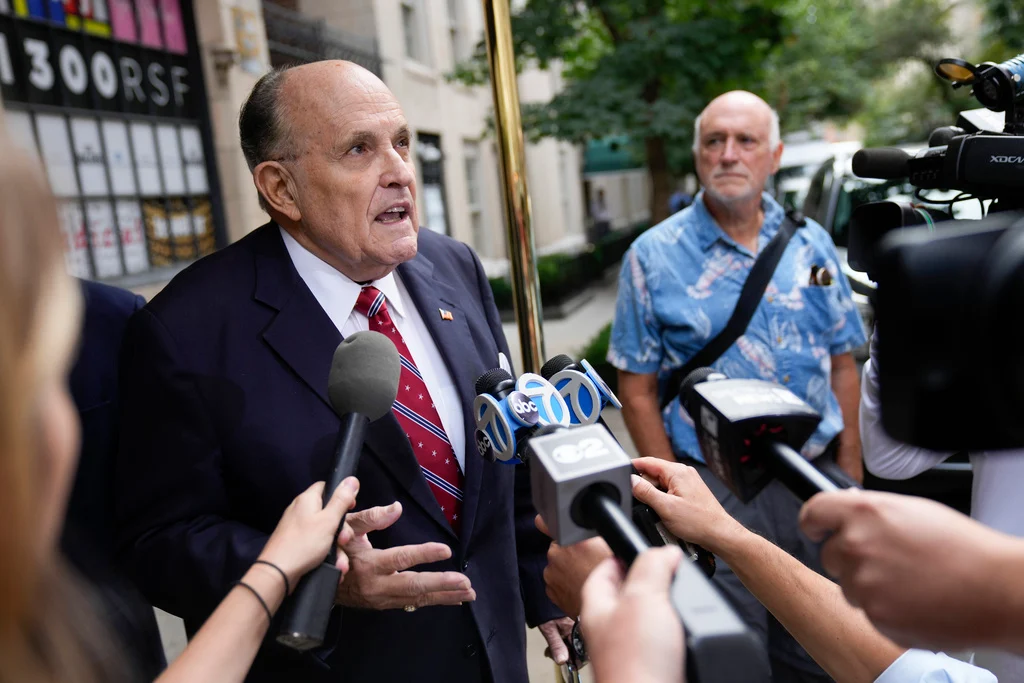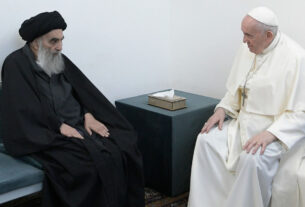In a recent rally for Donald Trump, former New York City Mayor Rudy Giuliani delivered a controversial speech that criticized Palestine and its supporters. This rhetoric has sparked backlash among key Muslim and Arab American communities, potentially jeopardizing Trump’s efforts to court these crucial voter demographics in the upcoming 2024 election against Vice President Kamala Harris.
The Context of Giuliani’s Speech
Giuliani, known for his outspoken views on various issues, used the platform to address what he described as the threats posed by Palestinian groups. His comments included strong anti-Palestine sentiments, which many perceived as inflammatory and divisive. Given Trump’s previous attempts to engage with Arab American voters, especially after his administration’s normalization agreements between Israel and several Arab nations, Giuliani’s rhetoric has raised alarms among political strategists.
The Significance of Arab American Voters
Arab American voters have historically been a vital constituency in swing states, particularly in Michigan, Pennsylvania, and Florida. In the 2020 election, many Arab Americans leaned Democratic, largely due to concerns over Trump’s immigration policies and rhetoric surrounding Muslims and refugees. As the 2024 election approaches, both parties recognize the importance of securing this demographic’s support.
Giuliani’s remarks could alienate Arab American voters who may have been open to supporting Trump due to policies that appeared to promote peace in the Middle East. For many in the community, a balanced approach to the Israeli-Palestinian conflict is crucial, and Giuliani’s comments might reinforce negative perceptions of Trump’s stance on these issues.
Backlash and Reactions
Reactions to Giuliani’s speech have been swift, with prominent Muslim and Arab American leaders condemning his remarks. Critics argue that such rhetoric not only undermines the potential for dialogue but also perpetuates harmful stereotypes and divisions. Organizations such as the American-Arab Anti-Discrimination Committee and various grassroots movements have voiced their discontent, urging voters to reconsider their support for Trump.
Many advocates emphasize that the 2024 election offers an opportunity for candidates to engage constructively with Arab American communities rather than resorting to divisive rhetoric. The backlash against Giuliani highlights the growing expectations among voters for candidates to approach foreign policy issues with nuance and sensitivity.
Implications for Trump’s Campaign
Trump’s campaign strategists must now grapple with the implications of Giuliani’s comments. While some may argue that Giuliani’s speech resonates with a segment of Trump’s base, it risks alienating moderate voters who are critical for winning key battleground states.
Moreover, Trump’s ability to attract diverse support is a significant factor in his campaign strategy. The 2024 election is expected to be highly competitive, and any loss of support among Arab American voters could be detrimental to his chances, especially in states with substantial Arab American populations.
Conclusion
Rudy Giuliani’s anti-Palestine speech at a recent Trump rally has stirred significant controversy and may pose challenges for Trump’s efforts to win over Arab American voters in the 2024 election. As the political landscape evolves, candidates must navigate complex issues surrounding race, religion, and foreign policy with care and consideration.
The repercussions of Giuliani’s remarks extend beyond a single speech; they reflect broader trends in voter sentiment and the importance of inclusive dialogue. For Trump, engaging positively with diverse communities will be crucial in shaping a successful campaign that resonates with a wide range of voters, including those who may feel marginalized by incendiary rhetoric. As the election approaches, the stakes have never been higher for both candidates in courting this essential constituency.



